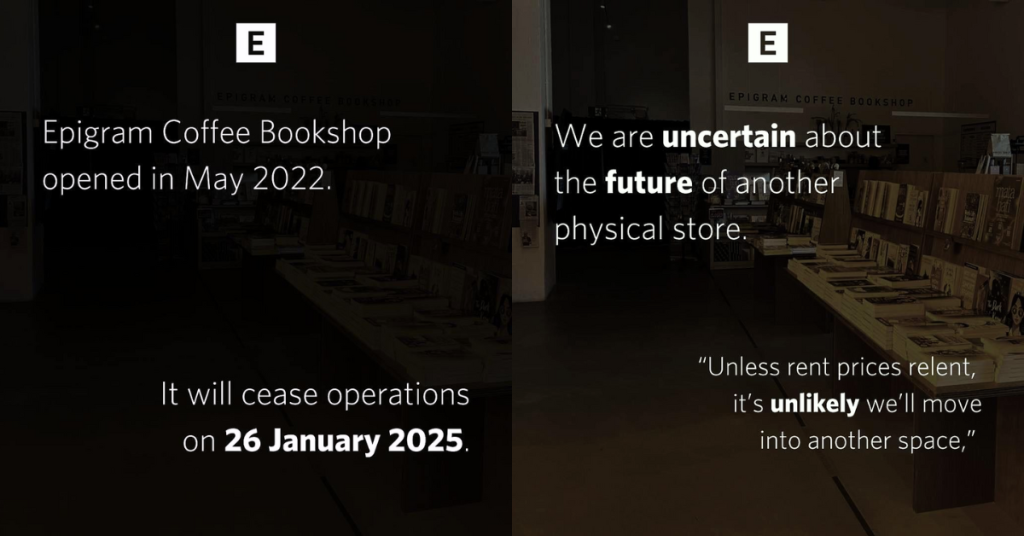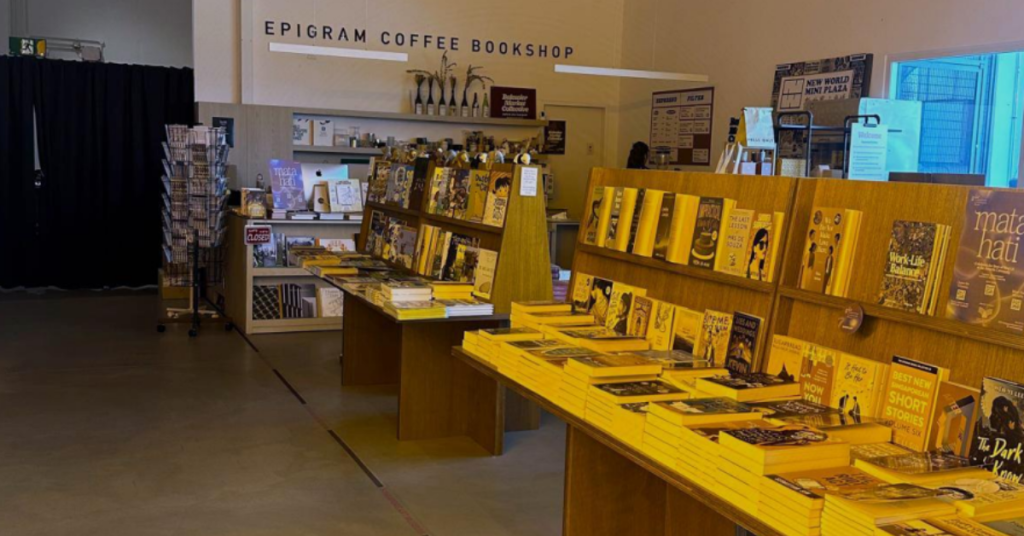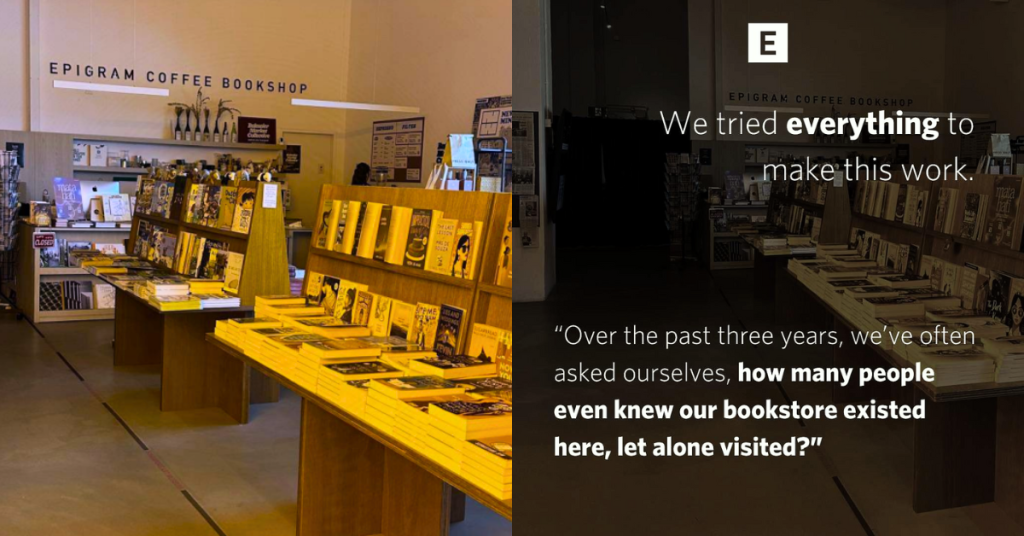On September 19, homegrown book publisher Epigram Books posted to Instagram: “Another one bites the dust…”
This is followed by the bittersweet announcement that Epigram Books will be shutting down its sole physical outlet, Epigram Coffee Bookshop, on January 26, 2025.
“This week has been a tough one for Singapore’s book community, and we are even more disheartened to share with you this unfortunate news that has hit close to home for us at Epigram Books,” the post read.

Epigram Books is of course referring to the recent closure of Times Bookstores, announced on September 16.
Specialising in Singaporean titles, Epigram Books is an independent publisher and bookseller. Its brick-and-mortar space has been located in Singapore Arts Museum for the past few years.
But its time there is coming to an end next January, coinciding with the Chinese New Year weekend.
In a press release, Epigram Books shared that its three-year lease is coming to an end. And due to poor sales performance, the business has chosen not to renew the lease.
“Despite efforts to boost sales and foot traffic, the decision to close comes after years of battling low visitor numbers and limited accessibility,” the release stated.
Low foot traffic and sales
CEO Edmund Wee stated in the release, “We tried everything to make this work. Over the past three years, we’ve often asked ourselves, how many people even knew our bookstore existed here, let alone visited?”
Previously known as Huggs-Epigram Coffee Bookshop, the first store was originally located at the Urban Redevelopment Authority Centre on Maxwell Road, established in 2019.
It was the first bookstore in Singapore dedicated to selling only books by Singaporean authors, about Singapore, or published in Singapore.
Alongside selection of works from Epigram Books, the bookstore also carries titles from other independent publishers like Ethos Books, Math Paper Press, and World Scientific.
Although the bookshop has been enjoying a temporary surge in visitors thanks to Olafur Eliasson’s exhibition at the museum, which ended on September 22, 2024, the team believes the increased foot traffic would be short-lived.

“The exhibition book became the store’s bestseller for several weeks, but as predicted, once the exhibition leaves, so do the crowds,” the release said.
Wee also shared that Epigram had to close its first bookshop during the pandemic, which was difficult but more understandable given the circumstances.
“This time, however, the closure feels more frustrating. It’s not the pandemic—we just don’t have anywhere else to go,” Wee said.
With that, Epigram Books remains uncertain about the future of another physical store.
“Unless rent prices relent out there, it’s unlikely we’ll move into another space,” Wee shared. “The lights are still on for now, and customers can expect a closing down sale soon.”
The end of a chapter?
With two beloved bookstore brands closing down in Singapore, could that be signalling that demand for books have dwindled in the country?
Rather than indicate a diminishing reading appetite among Singaporeans, perhaps it might be more likely that readers are turning to new platforms and formats to satisfy their literary interests and thus their shopping habits.
With the ability to shop online for books, visiting physical bookstores has become more of a novelty experience than it is a common occurrence.
Moreover, piracy has become a serious issue within the book community, with people sourcing files of ebooks online, which is damaging for bookstores, publishers, and authors alike.
Epigram’s closure of its brick-and-mortar store in specific could also reflect a broader challenge in sustaining local book culture. Unlike large chains, Epigram focuses on promoting local authors, offering specialised genres and titles.

Thus, the closure could signify a decline in the appreciation of these local themes, which can impact Singapore’s literary ecosystem in a dire manner.
“These spaces are special to our literary arts community,” Wee shared in the release. “They’re where booklovers gather, where literary events and book launches happen in support of our writers.”
As such, Epigram Books urged Singaporeans to continue supporting independent bookstores, stressing their importance as cultural spaces in a fast-changing urban environment.
On that note, Epigram Books’ online store will remain operational, giving readers the opportunity to continue supporting local authors, publishers, and bookstores. Perhaps, with increased awareness and support, Epigram Books may be able to consider opening a physical outlet again in the future.
- Learn more about Epigram Books here.
- Read other articles we’ve written about Singaporean startups here.
Featured Image Credit: Epigram Books










